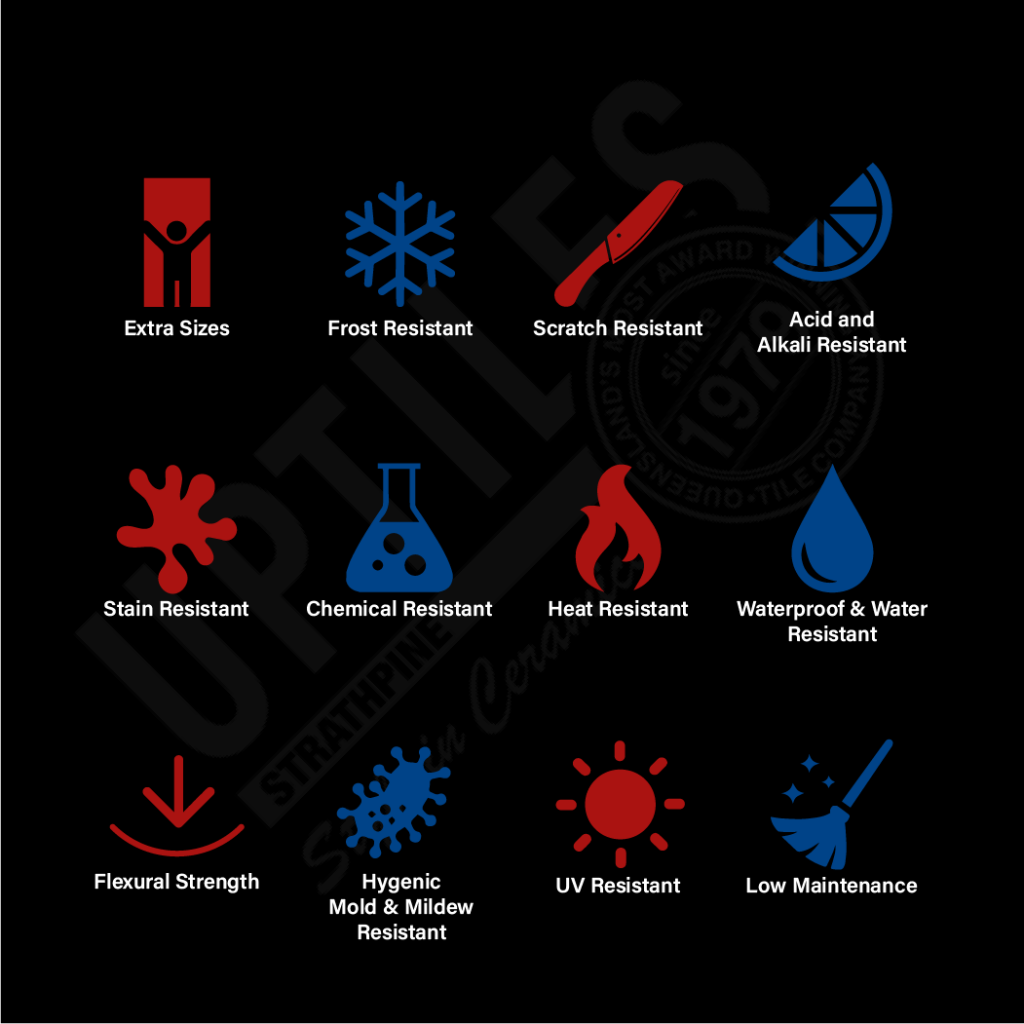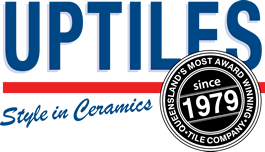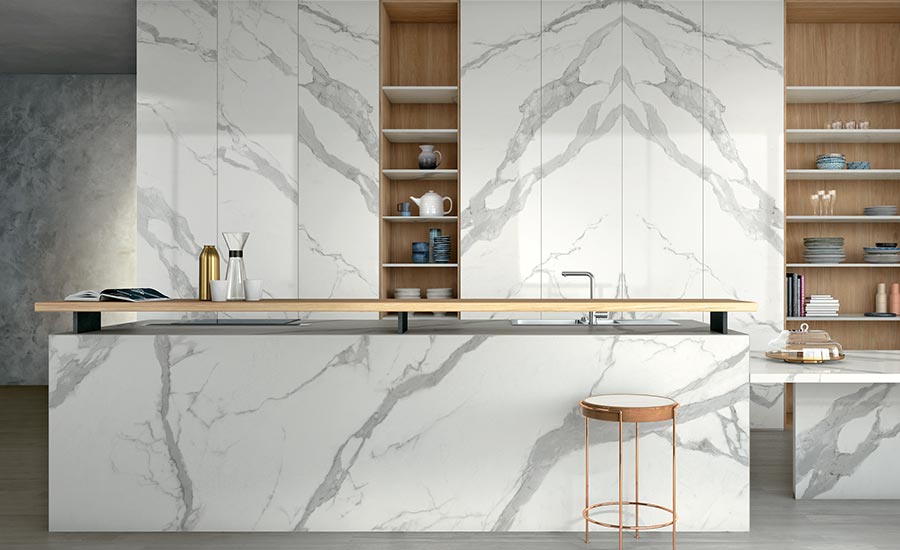
We use sophisticated sintering processes to transform select raw material from all over the world, to obtain an ultra-high-performance material. Clays, feldspars, kaolin, and sand: Uptiles porcelain slabs recreate natural stone, marble, and metallics to offer a state-of-the-art product that’s easy to furnish, live with, and love.
Advantages of Porcelain Slabs

Our slabs are ideal for professional kitchens as they ensure the highest technical performance. Tested for direct use with food, blades, liquids and hot surfaces, they resist wear, and maintain their qualities, unaltered over time. Unlike manufactured stone surfaces, these slabs can be used both internally and externally, as they are 100% UV stable and colour-fast for life.

Available in 6 or 12 mm thickness, they can be adapted to a variety of applications including benchtops, cabinetry, doors, tabletops and vanities.
These slabs are available to view in our Brisbane Tile Showroom today!
Care Advice
Cleaning After Installation
Porcelain Slabs have a surface that’s resistant to stains, hygienic and easy to maintain; to preserve these characteristics, thorough cleaning must occur as soon as installation is completed, eliminating any residues that may create a film on the surface of the product capable of retaining more dirt. Insufficient or late removal of grout, silicone and adhesive residues may leave stains that are difficult to remove.
Initial cleaning must therefore take place immediately after installation, using acid-based products, rubbing hard and rinsing well with plenty of water. This will permit the elimination of adhesive, cement, silicone residues, etc. All detergents available on the market may be used with the sole exception of products containing hydrofluoric acid (compounds and
derivatives) as per the EN 14411 standard.
NB: Take care to follow the instructions provided by the producer on the pack of the product used. Before cleaning the surface installed, it is always best to test the cleaning agents first on a sample of the material which has not been installed, or on a small, not very visible area.
We recommend the use of an acid cleaner (e.g.: DETERDEK – filasolutions.com)
Epoxy grout residues should be removed with an alkaline cleaner
(e.g.: FILA CR10 – filasolutions.com)
Routine Cleaning
For routine cleaning, it is enough to follow a few simple precautions which are mainly common sense once the material’s characteristics are borne in mind.
• Use neutral, wax-free detergents diluted in water, always following the instructions on the packs.
• Clean water may be sufficient for frequent washes.
• Do not use acidic products or abrasive tools, which may make the surface of lapped materials matt, and compromise the cement-based materials used for sealing.
• All possible care should be taken to prevent the presence of material from outdoors which may cause scratches, quartz sand and other materials, since they may cause abrasion of the surface and reduce its shine.
• VENTILATED FACADES
The insulation installed behind the slab covering is most effective when perfectly dry; do not use violent water jets.
We recommend the use of a neutral cleaner ( e.g.: FILACLEANER – filasolutions.com)
NB: Waxes, oily soaps and impregnating materials (water and oil-repellents) should not be used on porcelain stoneware.


